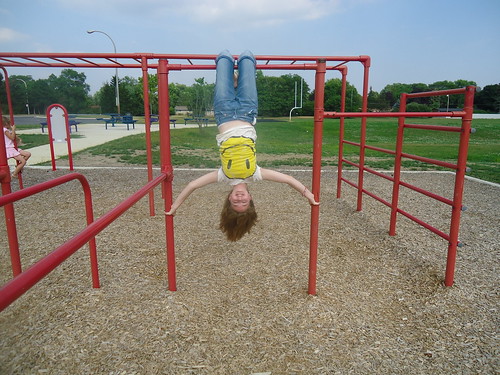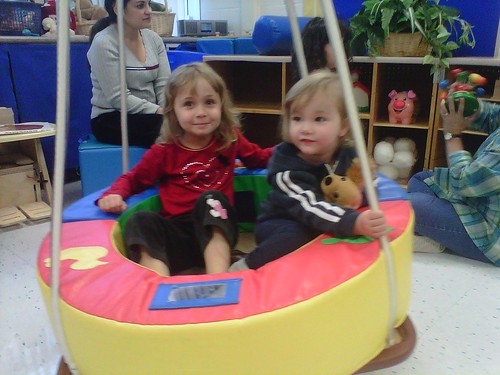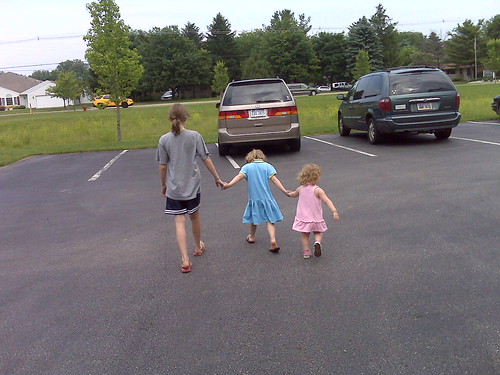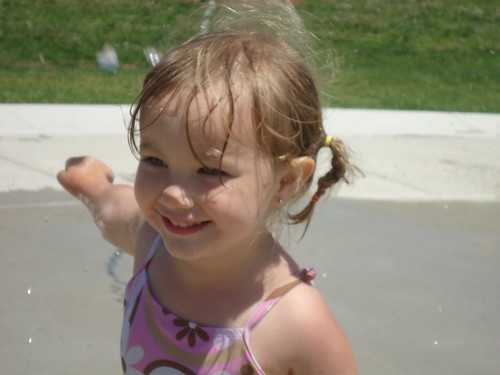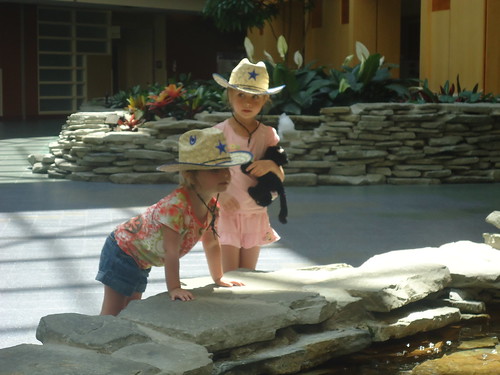 As I mentioned in my last post we brought a couple of kittens home the other day. My kids have been asking for a cat for a long time. So when a friend mentioned that she had kittens (well, she didn’t have them herself…her cat did) I packed up all of my kids and took them to pick out a kitten. Actually two, because even kittens need company and just like kids two together are always easier to care for than one by themself, at least the way I see it.
As I mentioned in my last post we brought a couple of kittens home the other day. My kids have been asking for a cat for a long time. So when a friend mentioned that she had kittens (well, she didn’t have them herself…her cat did) I packed up all of my kids and took them to pick out a kitten. Actually two, because even kittens need company and just like kids two together are always easier to care for than one by themself, at least the way I see it.
Obviously my kids were very excited to go and bring not one, but two kittens home to love and have for their very own. For me and my friend the process of going and taking two kittens away from their mother was bitter-sweet. She couldn’t keep them all, they would be taken care of and loved at our house, but as mother’s we were each a bit sad about the whole process. And knowing that later their mother would be searching for her babies and they would not be there and she would have no idea where they went or what happened to them. Yes, it would seem that even cats grieve the loss of their children. *sigh*
They (the kittens) cried for the whole ride home, which bummed my big girl out,
“but mom they are so scared…”
“And you would be to if some strangers just picked you up put you in a box and took you away from your mother and everything you have ever known.”
“the whole being away from my mother thing wouldn’t be so bad.”
 “Ha, that’s what you think now! Who’d wash your clothes, who’d bring you a glass of water in the middle of the night, who’d scoop your ice-cream? Huh? You would have to do all of that for yourself!”
“Ha, that’s what you think now! Who’d wash your clothes, who’d bring you a glass of water in the middle of the night, who’d scoop your ice-cream? Huh? You would have to do all of that for yourself!”
And being thirteen, she scrunched up her face and rolled her eyes…but at least she stopped talking and that ain’t no easy feat.
But the little girls were completely unaffected by the mournful cries of their new, beloved kitties. Oh, no the only thing they could think about was getting them home and loving them up. (as it probably should be at three and five. Empathy is tough enough, let alone to transfer human emotions to the plight of animals, just a little too sophisticated for them at this point)
No sooner than we get in the door does the squealing, chasing, petting, hugging, kissing and the badgering with cat toys commence. The kittens are hiding and tiny hands are reaching and grabbing and pulling out from under and it all starts again. I am gently trying to explain, that the kittens are scared, they have never been here before, they have never been away from their mother and we need to just let them BE. They more we pull at them to try to love them up, the more scared they will be, the more they will run away and the more they scratch because those are the only defenses they have when they are scared. We have to leave them alone, and let them hide so they can learn to feel safe in our house. You have to be calm and not react when they come out of hiding. They will learn to love you if you let them come to you, but if you keep chasing them and trying to MAKE them, they will never learn to trust you.
We have to just let them BE.
 Feeling like a good mom, I left the room. Only to return to discover my precious angels attempting to jam our terrified kitties into the cardboard box they rode home in and fashioning a lid out of towels and clothes pins…at which point I completely lost my shit and started yelling, “don’t touch the CATS! If either one of you touches these g-d damned cats again I am taking them back to their mommy! Do you understand? Don’t touch them again!” And I scooped up the kittens, the litter and their bowl and put them in my room, where they slept like babies smack dab in the middle of Mr. Sunday’s pillow for the rest of the night.
Feeling like a good mom, I left the room. Only to return to discover my precious angels attempting to jam our terrified kitties into the cardboard box they rode home in and fashioning a lid out of towels and clothes pins…at which point I completely lost my shit and started yelling, “don’t touch the CATS! If either one of you touches these g-d damned cats again I am taking them back to their mommy! Do you understand? Don’t touch them again!” And I scooped up the kittens, the litter and their bowl and put them in my room, where they slept like babies smack dab in the middle of Mr. Sunday’s pillow for the rest of the night.
Things have been much better for Fred (Astaire) and Ginger (Rogers) since that first night, they are not hiding, and while they still don’t come to the kids, they are not running away either…I call that progress.
…and that is the thing about kittens, kids and attachment, sometimes when we want someone or something to love us back the best thing you can do is let a creature BE.
